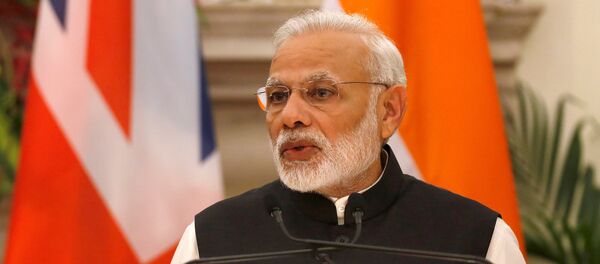New Delhi (Sputnik): A fortnight after Indian Prime Minister Narendra Modi's remark about weather consideration while planning the pre-dawn Balakot air strikes in Pakistani territory sparked furore, a top Indian Air Force official, Air Marshal Raghunath Nambiar, has expressed support for his logic.
Indian Prime Minister Narendra Modi asked the Indian Air Force to execute the plan in cloudy weather as he thought it would help India fighter jets evade Pakistani radars.
READ MORE: Modi Mocked for Saying Indian Jets Could Use Clouds to Hide From Pakistani Radar
The IAF officer has said "very strong clouds and very strong convective conditions in clouds prevent the radar from detecting very accurately".
"There are various kinds of radars working with different technologies. Some have the capacity to see through, some don't have the capacity to see through [clouds]," Indian Army Chief General Rawat said while interacting with the media on Kerala state's Ezhimala hill on Saturday.
Earlier this month, during an interview with News Nation TV, Prime Minister Modi said bad weather conditions on the night of 25 February complicated planning for the 26 February strikes, and even some military experts wanted to postpone the raid.
READ MORE: Two Indian Army Commanders Escaped Pakistan's Kashmir Air Strike — Report
"At around 1:30 am, we started the movement. At 2:55 am we okayed it and at 3:20 am I got the report about the air strikes. There was so much movement in air and water that it confused Pakistan," the Indian prime minister stated.
India carried out the airstrikes on Pakistani territory in retaliation to a terror attack by a Pakistan-based terrorist group which left some 40 Indian soldiers dead in Jammu and Kashmir. The strike escalated tensions between the two nuclear-armed neighbours, leading to dogfights and clashes along the Line of Control (LoC).





